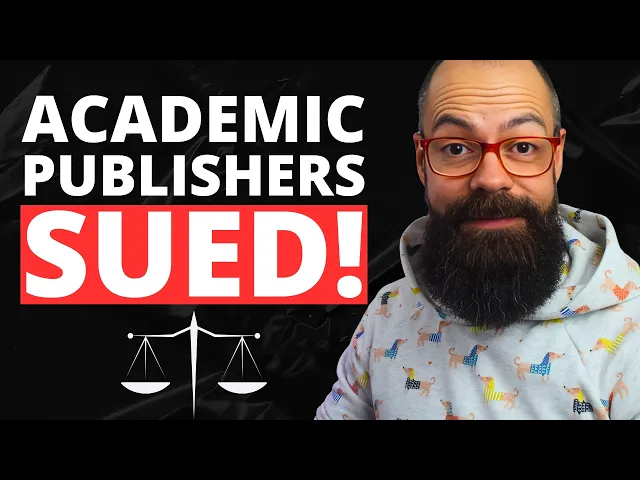Inside Academia’s Broken System: The Lawsuit That Changes Everything

Lawsuit shatters academia's broken foundations
In a recent YouTube video titled "Inside Academia's Broken System: The Lawsuit That Changes Everything," viewers are given a deep dive into a potentially transformative legal battle within higher education. The discussion centers on a lawsuit filed against elite universities that could fundamentally reshape how academic institutions operate, particularly regarding their compensation practices and treatment of faculty.
Key revelations from the video
- A class-action lawsuit has been filed against several Ivy League universities, alleging collusion to artificially suppress faculty wages through information sharing and non-competition agreements
- The academic system maintains a problematic power dynamic where professors have extraordinary influence over their graduate students' futures, creating potential for exploitation
- The current academic model incentivizes researchers to pursue publication quantity over quality, leading to a reproducibility crisis where significant scientific findings cannot be verified
The most compelling insight from this discussion is how the academic system has evolved into what might be described as a feudal arrangement. Senior faculty essentially function as lords over their domains, with graduate students serving as modern serfs providing cheap labor with limited rights or protections. This medieval parallel isn't just provocative rhetoric—it highlights how power concentrates in academia not through market forces but through institutional hierarchy and tradition.
This matters tremendously because universities aren't just educational institutions; they're the engines of scientific advancement and knowledge creation for our society. When these engines operate on a flawed model that prioritizes prestige and publication volume over scientific integrity and fair labor practices, the consequences extend far beyond campus boundaries. The reproducibility crisis mentioned in the video represents a genuine threat to scientific progress, as resources are wasted pursuing findings that may not be reliable.
What the video doesn't fully explore is how these academic labor issues connect to the broader contingent faculty crisis in higher education. While focusing on graduate students and tenure-track positions, it overlooks that approximately 75% of university teaching is now conducted by adjunct professors working on semester-to-semester contracts without job security or benefits. This expansion of the "academic precariat" represents perhaps the most significant labor transformation in higher education's history.
Consider Duquesne University, where adjunct professor Margaret Mary Vojtko died penniless in 2013 after teaching French for 25 years without benefits or retirement contributions. Despite decades of service, she was earning roughly $10,000 annually
Recent Videos
How To Earn MONEY With Images (No Bullsh*t)
Smart earnings from your image collection In today's digital economy, passive income streams have become increasingly accessible to creators with various skill sets. A recent YouTube video cuts through the hype to explore legitimate ways photographers, designers, and even casual smartphone users can monetize their image collections. The strategies outlined don't rely on unrealistic promises or complicated schemes—instead, they focus on established marketplaces with proven revenue potential for image creators. Key Points Stock photography platforms like Shutterstock, Adobe Stock, and Getty Images remain viable income sources when you understand their specific requirements and optimize your submissions accordingly. Specialized marketplaces focusing...
Oct 3, 2025New SHAPE SHIFTING AI Robot Is Freaking People Out
Liquid robots will change everything In the quiet labs of Carnegie Mellon University, scientists have created something that feels plucked from science fiction—a magnetic slime robot that can transform between liquid and solid states, slipping through tight spaces before reassembling on the other side. This technology, showcased in a recent YouTube video, represents a significant leap beyond traditional robotics into a realm where machines mimic not just animal movements, but their fundamental physical properties. While the internet might be buzzing with dystopian concerns about "shape-shifting terminators," the reality offers far more promising applications that could revolutionize medicine, rescue operations, and...
Oct 3, 2025How To Do Homeless AI Tiktok Trend (Tiktok Homeless AI Tutorial)
AI homeless trend raises ethical concerns In an era where social media trends evolve faster than we can comprehend them, TikTok's "homeless AI" trend has sparked both creative engagement and serious ethical questions. The trend, which involves using AI to transform ordinary photos into images depicting homelessness, has rapidly gained traction across the platform, with creators eagerly jumping on board to showcase their digital transformations. While the technical process is relatively straightforward, the implications of digitally "becoming homeless" for entertainment deserve careful consideration. The video tutorial provides a step-by-step guide on creating these AI-generated images, explaining how users can transform...
